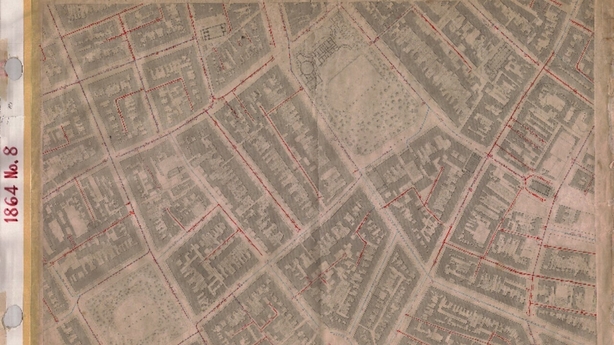A €60 million upgrade of Dublin's Victorian sewers is underway in the city centre.
Irish Water said new technology will mean that there will be minimum disruption for the city centre during the two-year programme.
Dublin's brick sewers date back to the mid 19th Century - the oldest still in use is reported to be in Cornmarket beside Thomas Street, which was built in 1852.
There are 36km of the sewer tunnels under Dublin's Georgian and Victorian areas. Phase one of the works programme will involve repair to 2km.
Some of the sewer lines themselves date back hundreds of years and were originally streams used to dispose of waste, according to Regional Delivery Lead with Irish Water Mark O'Duffy.
While modern engineers marvel at the work done by Victorian workmen, the 150-year-old tunnels are showing breakages in parts.
Irish Water said this has been causing problems, such as sewer collapses and blockages, foul odours, sewer flooding in business premises, and long-term disruption to road users as a result of ongoing maintenance.

Irish Water has carried out a survey and after the brickwork is repaired, the tunnels will be lined with precast plastic moulding. The tunnels range in size up to two metres high.
Cathal Kelly of Contracts Manager at GMC Utilities said the new lining is installed in sections, which means the street does not have to be dug up.
It can also be done at night, minimising the disruption to neighbouring residents and businesses, as well as road users, he said.
Phase One of the works will take place over the next six months on Dorset Street, Wellington Street, Eccles Street, Saint Joseph's Parade, Saint Joseph’s Place, Saint Augustine Street, Mount Street Crescent, Herbert Lane, South Great George Street, Fade Street, and Stephen Street Upper.
Mr O'Kelly said: "Their engineering is incredible, but climate change and population growth are putting huge pressures on this ageing network.
"These sewers collect the waste of thousands of Dubliners so we need to make sure they continue providing this vital service for at least another 100 years."
The network takes wastewater to the Ringsend Wastewater Treatment Plant.






